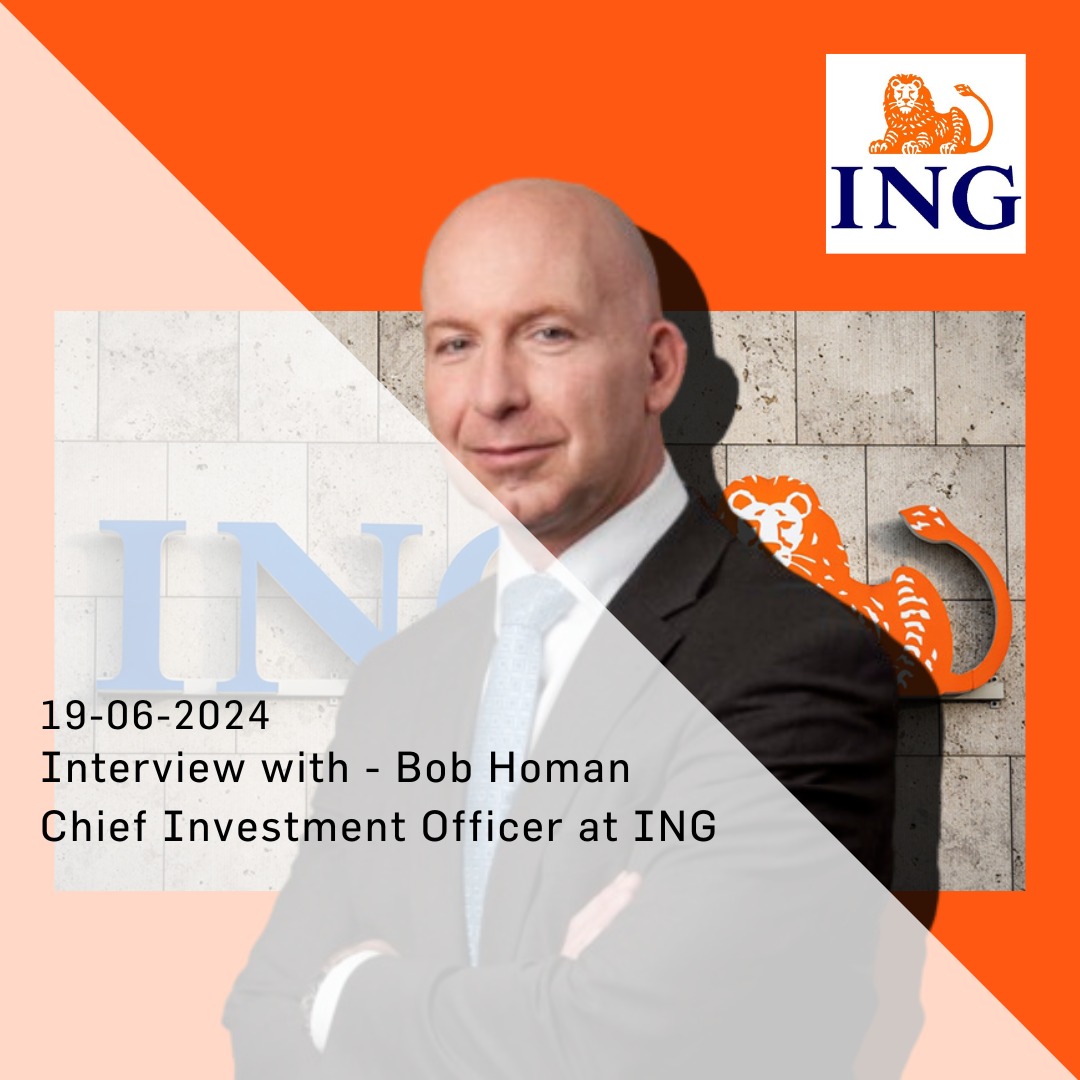Preparation for the eleventh edition of Investment Night began in early September. When we as a committee met for the first time at the beginning of


Nout Wellink, the former president of De Nederlandsche Bank (the Dutch Central Bank) and currently working as the independent non-executive director at the Bank of China, was interviewed by Sanne and Max. He describes the cultural differences between the Netherlands and China he experiences when working in China. Moreover, he gives his frank opinion on the growth rate of the Chinese economy and the country’s changing market situation.
What did you study?
I studied Law in Leiden. Actually, I had no particular interest in something, but finally I started studying Law, which brought me a lot later on. I made my transition to economics when I was asked to become student assistant of my professor of Economics at the Faculty of Law. Afterwards I started working as a researcher in Economics in Leiden. I started there with my thesis on mortgage banking. After a conflict, I went to another professor. He asked me what my interests were and I told him that I wanted to go to the Ministry of Finance. When I was working at the Ministry of Finance, I was promoted at the Faculty of Economics of the Erasmus University.
My move to De Nederlandsche Bank occurred because I was Treasurer-General at the Ministry of Finance. The then President of the Bank, Zijlstra, wanted to retire in 1981. The Supervisory Board had extensive discussions about who was going to succeed Zijlstra. However, no agreement could be reached. They considered Duisenberg, but he was a socialist and the top of the Bank was liberal. Eventually they wanted Duisenberg as President provided that I would also join the management of DNB. After the elections of 1981, however, I had to work with the new minister for six months. So I told them I would do it, but only if I could start in January 1982. Consequently, Duisenberg had to be director for six months before he could move on to the presidency of De Nederlandsche Bank. Eventually I stayed at DNB until 2011. This period was too long actually. In the meantime I had received several job offers at unfortunate moments in my life, like when we were in the midst of the crisis. I could not walk out the door at those times, so I always stayed.
Since October 2012 you have been supervisor on the board of the Chinese state bank ‘Bank of China’. How did you get there and what is your function exactly?
Supervisor is not the right word. It is a one-tier board and I am the independent non-executive director. You are closer to the executive management than as a member of the Supervisory Board. I think I have ended up there because I was chairman of the Basel Committee. In the Basel Committee we developed rules in response to the financial crisis. The Bank of China is a SIFI – Systemically Important Financial Institution – and therefore must also introduce all the new rules. The Bank of China wants to operate internationally and is also controlled by the international supervision community. I think a major reason to get me on board is my knowledge of the Basel agreement and my knowledge of the financial markets. Next to that, I also was president of the Bank for International Settlements. In that period I got my colleagues to accept China as a member of the Board. I am sure they have appreciated that.
I have always been interested in Chinese culture and history. What I find interesting as well is that I am in the middle of big changes in China, so I can observe well what is going on. Moreover, this bank is a financial crown jewel.
How do you define emerging markets?
That is very difficult. I have grown up with the phrase “Less Developed Countries”. It was then found politically incorrect. In fact, emerging markets are countries on their way to a market economy, but where political regimes play quite an important role. You cannot really speak of liberalized markets yet, but they are making steps into that direction. These countries often grow quickly and are also somewhat volatile. They really have features of centrally planned economies. China is the second largest economy in the world, but if you look at the per capita income, China is ranked 90th. Some parts of the economy function as Western economies, but other parts function as Emerging Markets. As you go further away from the big banks, you come about banks that are still really in the growth phase. The Bank of China, however, is now implementing the Basel III rules for SIFI banks at a high rate. The liquidity ratios that they pursue under Basel III are already higher than in Europe. That is a good sign.
Do you notice many (cultural) differences in banking between the Netherlands and China?
I feel that – stated rather dramatically – our banks are starting with themselves and act in their own interests. You have to convince them that the financing of SMEs and residential building sector is really useful and in the interest of the nation. So our banks start with the individual and themselves. Chinese banks start with the community. They first ask themselves whether what they do fits in the long-term government planning. In some ways we can learn from the Chinese. At the same time, however, they have also funded industries at the request of the central government, without being economically viable. So there are over-investments in certain sectors. In a market economy these kinds of funding would be put to a halt earlier. On the other hand, it is an advantage that the government sees in which sectors overcapacity exists and then emits signals to the banks that it does not serve national interest to provide these sectors with funding in the future. The approach is different in the two cultures.
Liberalizations of the Chinese economy seem to have been going on lately. Is a transition from planned to market economy going on in China?
This transition from centrally planned to market economy is inevitable. I will illustrate this on the basis of an example. The capital account on the balance of payments has not liberalized. That means that Chinese citizens and businesses cannot just bring their money to other countries in order to invest it there. In addition, interest rates have not, or to a very limited extent, been liberalized. This means that Chinese citizens receive a very low, centrally controlled interest on their deposits. Moreover, there are also fixed interest rates for lending money by banks. That Chinese citizen sees that he gets only little interest on his bank deposits, and he cannot go abroad with his money. So he is going to look for alternatives in China, and so bubbles are created, for example in real estate. At one point I heard that clubs of wealthy housewives are investing in real estate; they are really going to speculate. To prevent people from going into this shadow banking sector, you have to liberalize. We have seen this liberalization process in countries like Russia, Brazil, Turkey and also in Latin America. It is in itself a risky process. A bank that has fixed borrowing and lending rates has, determined by the government, has a fixed interest rate margin and consequently, to a large extent, a fixed profit. The return on equity of the major banks in China is high; between 18% and 25%. The moment you liberalize interest rates, deposit rates go up and lending rates go down. This reduces the profit margin. So these banks have to come up with something else and then they invent things that we have invented in the past as well, such as insurance companies that are selling guaranteed return products. Furthermore, exchange rates may also shoot up high if you are going to liberalize these things. If you have many U.S. dollars on your balance, then you could suffer big losses here. These are all moments of risk. So liberalization is inevitable, but on the other hand, you can only do this step by step. That is a very delicate balance. This went the wrong way in other countries in the past. When I look at the Chinese government, I see that they are aware of this. They are not rushed by academics who say they must liberalize instantly. This is of course a trade-off, because liberalizing too gradually is also risky. It is just a very difficult process. It is also not in our interest to force this process, because if accidents happen over there, we will suffer. They are too large to not cause any accidents for us.
Is the planned economy a barrier to economic growth?
Yes and no. The planned economy has led to a very high economic growth, but it had a kind of side aspect that was not so desirable. Growth occurred especially through investments promoted by the government. The growth rate in China has gone down considerably, but this is largely a desirable slowdown in growth. I think that Western analysts have responded incorrectly to this slowdown in the beginning. Of course there is also a cyclical component that is associated with the global economy. If you look at developing countries, you see that they have a strong focus on exports at first; that is the first stage. In the next phase, you have to structure the economy in a different way. Growth should come more from domestic spending. There are two motivations to go to a lower growth rate. In the current ten-year plan China has scheduled an average growth rate of 7.5%. That is a doubling of the GDP. The first consideration is the environment, in which the authorities feel the pressure of the public. They see that the air and water pollution are taking proportions that are unacceptable and they want to do something about it. The Chinese also make jokes about it: we are gradually a democracy, we already share the pollution! This is becoming a political problem and so they want to do something about it. That means a lower growth rate. Second, you need to give citizens the feeling that attention is paid to them by raising wages for example. In this way consumption should increase. This transition from a growth rate of 12.5% to 7.5% is desirable, but very difficult, because you cannot precisely lead an economy.
China is suspected of having manipulated the Yuan. Has that been beneficial to economic growth in China?
China had an export-driven model, and then you should not see the currency going ‘sky-high’, because then the model does not work. They have controlled the exchange rate in the context of their model. Let us be very honest, Western countries did exactly the same in the past. The Americans have aimed their monetary policy at keeping the dollar weak, if you ask me. That is why they came out of their misery sooner than we. It depends on the phase in which the economy is whether this is still acceptable.
By now the Chinese have built up so many reserves that it is getting less and less acceptable to keep the exchange rate artificially low. You should also realize that keeping the exchange rate low is automatically getting less attractive. For example, if the dollar is devalued by 20% and you have an endless amount of dollars, then you suddenly lost a trillion of it. You build such large potential losses that you gradually – China seeks the path of gradualism – upgrade the Yuan by a few percent per year. At one time the price could rise harder, but at this time it would be disastrous to completely release it, also for the rest of the world economy. Releasing the exchange rate should be a gradual process.
Are there any other problems that hinder economic growth in China right now?
There are still problems, they are observed and need to be solved. Some of the problems I would call a “legacy of the past”. In the context of crisis management China has done the same as we have, but in a different way. China has put huge stimulus programs in motion, which it has not run directly through the government budget, but local authorities have done this through special ‘vehicles’; and these local authorities have sucked in the banks. So there are a lot of bank loans for projects that were intended to stimulate the economy, but some of those loans are not really solid. The Chinese bank loans are a legacy from the past they can handle. Ultimately, the total debt is still lower than in Europe, around 55% à 60%.
Another part of the problem is due to the transition to the current low growth rate, because that means that in some sectors overcapacity is created. That excess capacity should be phased out. In those sectors, companies will have to go bankrupt at a certain point in time. This process takes a bit longer than in The Netherlands. In the shipbuilding and solar industries the impact is clearly seen. There is a decrease in demand from the West and at the same time we see anti-competition rules in these sectors. Bank loans are often extended, allowing businesses to survive or delaying bankruptcy. However, all this is solvable, I believe.
The real problems for the Chinese economy are, to my mind, in the liberalization process that must take place and the phasing thereof. At what pace can you control this well? You should not wait too long, because there is an explosion of credit in the shadow banking sector going on, and you have not much control here. That is the hardest part of the story. It is important that the political stability in China can remain upright. It is a very big country. At present, politically, the world is very unstable. This instability is further triggered by the state of affairs in the world economy.
Suppose you are the President of the People’s Bank of China, what would you like to change immediately in the monetary policy of that central bank?
It would be somewhat arrogant to immediately do something else, but I think the President generally implements a good policy. He stands behind the liberalization process and he also has to deal with all those dilemmas that I outlined above. I experienced the current President at the international level, mainly in Basel, and it is an extremely intelligent man. I think he does what he can in the Chinese context. We often too easily sit on the chair of others. That is one of the problems of Americans. Americans believe that their approach is the right one, but then they forget that this approach does not work in all cultures. You must respect these cultures, albeit within limits. If you participate in the international economic community, you must also follow the international rules. The Chinese have made it clear to me that China is a very different country than the Netherlands, even though they must abide by international rules. I have seen so many countries in the course of time that I understand this and I am always careful to not sit too much on another country’s chair. They often know their own capabilities, culture and reaction patterns better.
You have also chaired the Basel Committee. Do you think the new rules should also apply to emerging markets?
There is a lot of leeway in the rules. In part, they are not relevant to those markets. You can introduce complex rules for very complex products, but those products do not even exist there. So they do not bother. Furthermore, it is not expected that these countries introduce the full Basel III regime all at once. This is a step by step process in which they must comply with the general principles first. Then they go through Basel I and Basel II. The Bank of China has complied with all international rules of supervision, although the bank is located in an Emerging Country. Moreover, some banks in the United States are still introducing the Basel II regime. The United States have always said that there is a difference between banks that operate internationally and in the local area. Those complicated Basel rules can of course not be imposed on these small, local banks. In Europe this is different. Here, all banks are treated equally, but the Americans have a very clear policy that local banks are treated very locally.
Do the Dutch entrepreneurs seize the business opportunities in China?
It is not easy to do business in China. Chinese are pretty tough negotiators. They have a very commercial mindset, which is actually interesting in the context of liberalization. They now have introduced a pilot in Shanghai in the form of a free trade area, where you can do all sorts of things that you are not allowed to do in China. In China you need a licence for everything. In that free trade zone in Shanghai you can do everything except those things that are forbidden. For example, you may also make investments abroad. I read somewhere that they also want to run these kind of projects in other areas in China, as to find out what the repercussions are of developing into a market economy. If this goes wrong, then they will slow down the liberalization of the economy. However, when it goes wrong, not everything will go wrong; they will take over the things that go well and try to improve the things that go wrong.
How long are you planning to stay at the Bank of China? Do you have any plans for the future?
The appointment of directors is for three years and may be renewed once for up to three years again. In our view these are relatively short periods of time, because we think of four-year terms. I do not know how long I will be there and what I will do next. At the moment I am not enjoying my retirement. China takes a lot of time and I am Chairman of the Board of Trustees of the University of Leiden, I am President at five foundations, I am President of a kind of Supervisory Board of PwC and I also lecture occasionally. So I am still very busy. I feel good about it now, but I must admit, the years start counting at one point. It is very diverse and even though I am busy, I do it because I enjoy doing it.
Do you have any wise lessons for students of Tilburg University?
Just corny lessons. You have to do things that you enjoy in life and you should also study something you like. You should not be too much concerned with the career behind the study, but choose a study you have an interest in, or you will not keep going. I have always liked my job very much. I was the youngest Treasurer-General at the Ministry of Finance in the last two or three hundred years and you really have to work hard for it, but it has never really felt like hard work. If you like something and you work hard for it, you might become good at it. It is corny wisdom, but it is true.





















